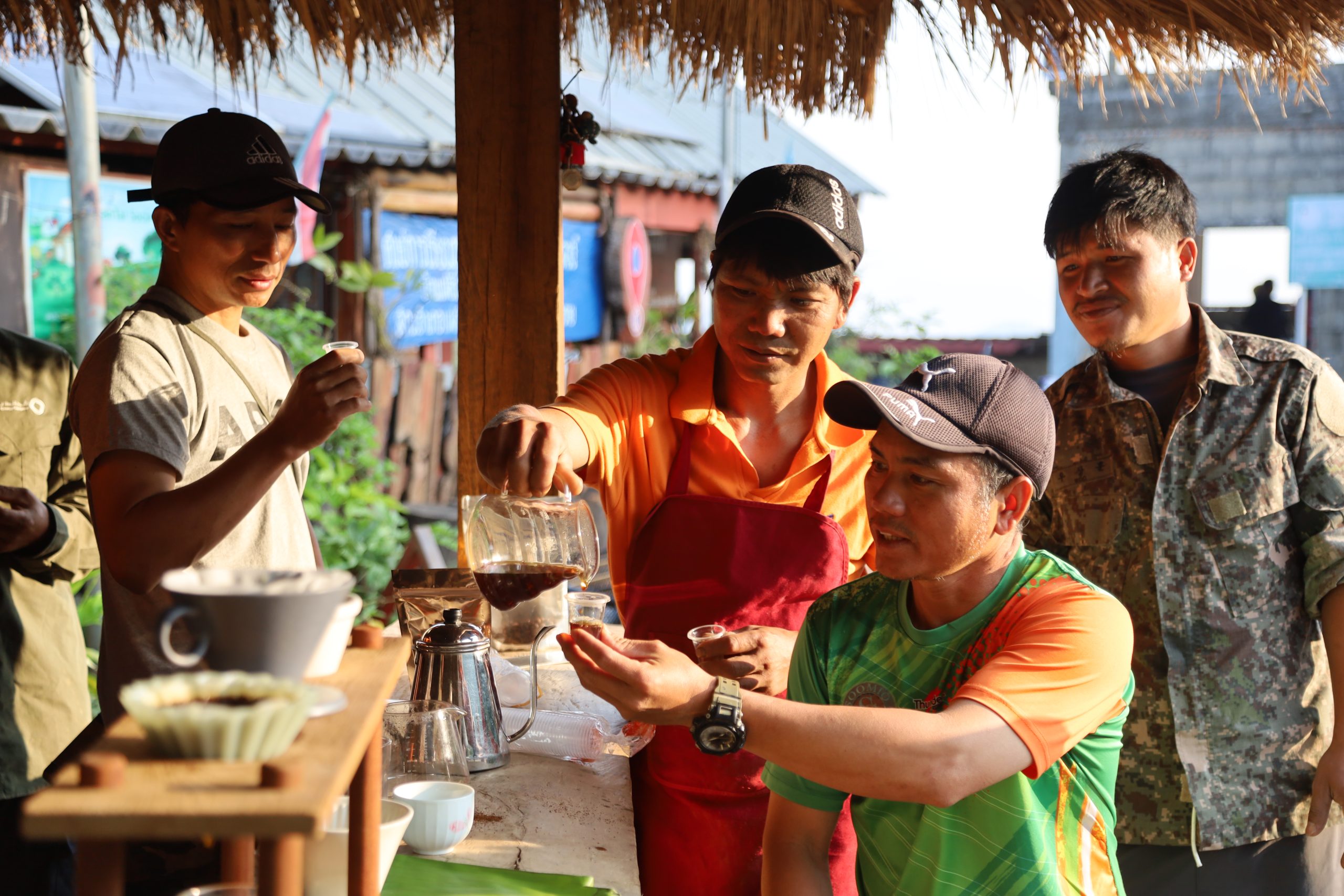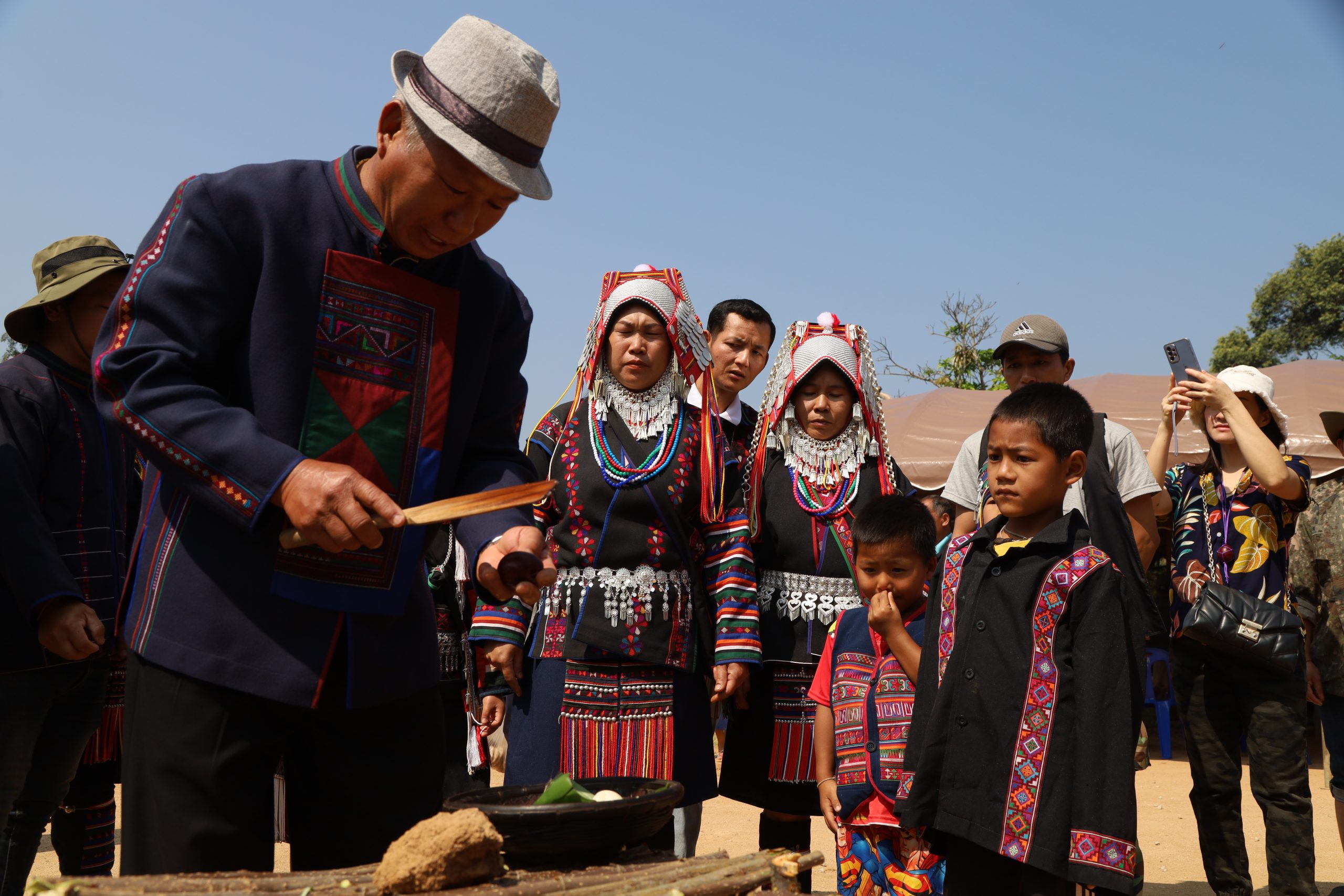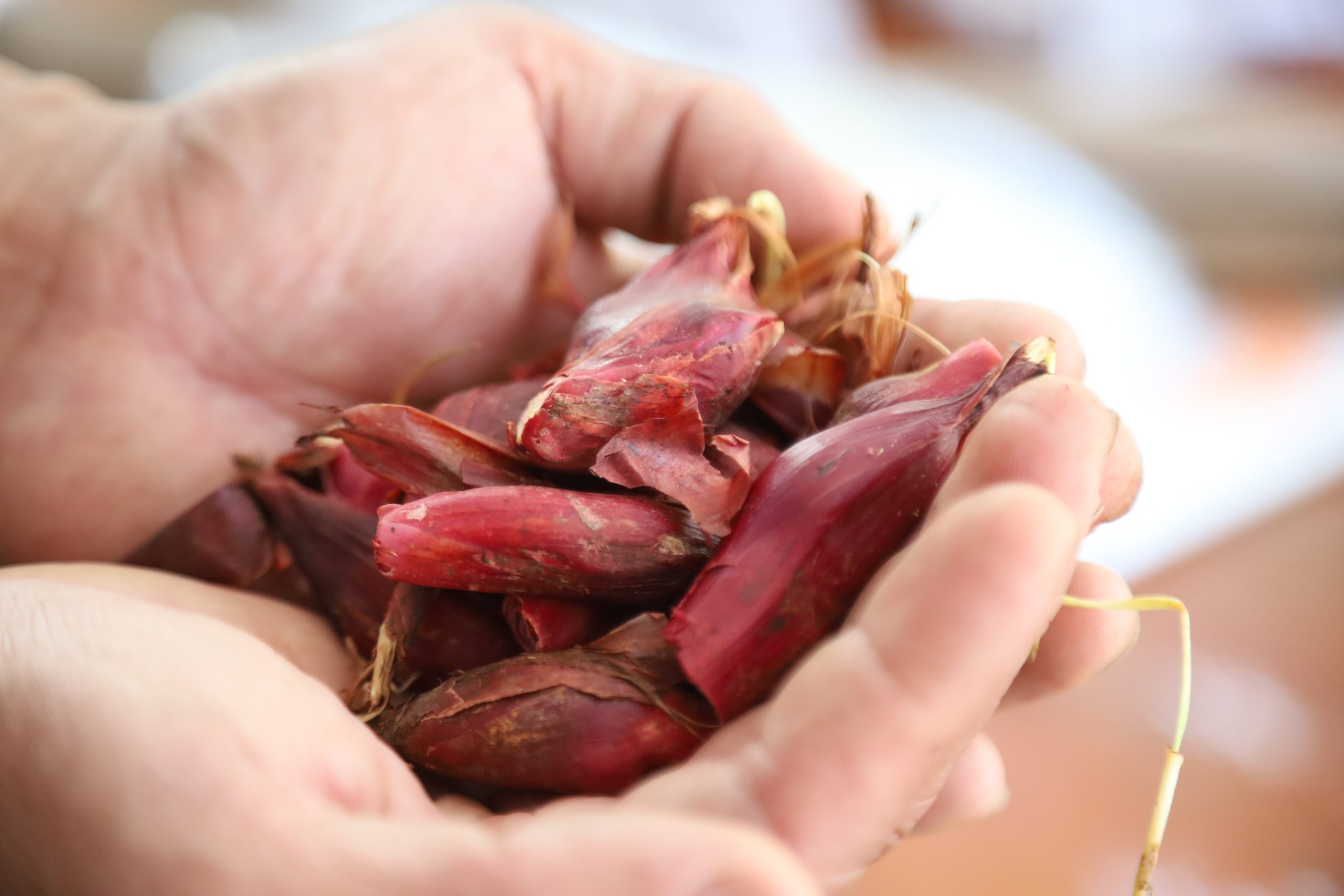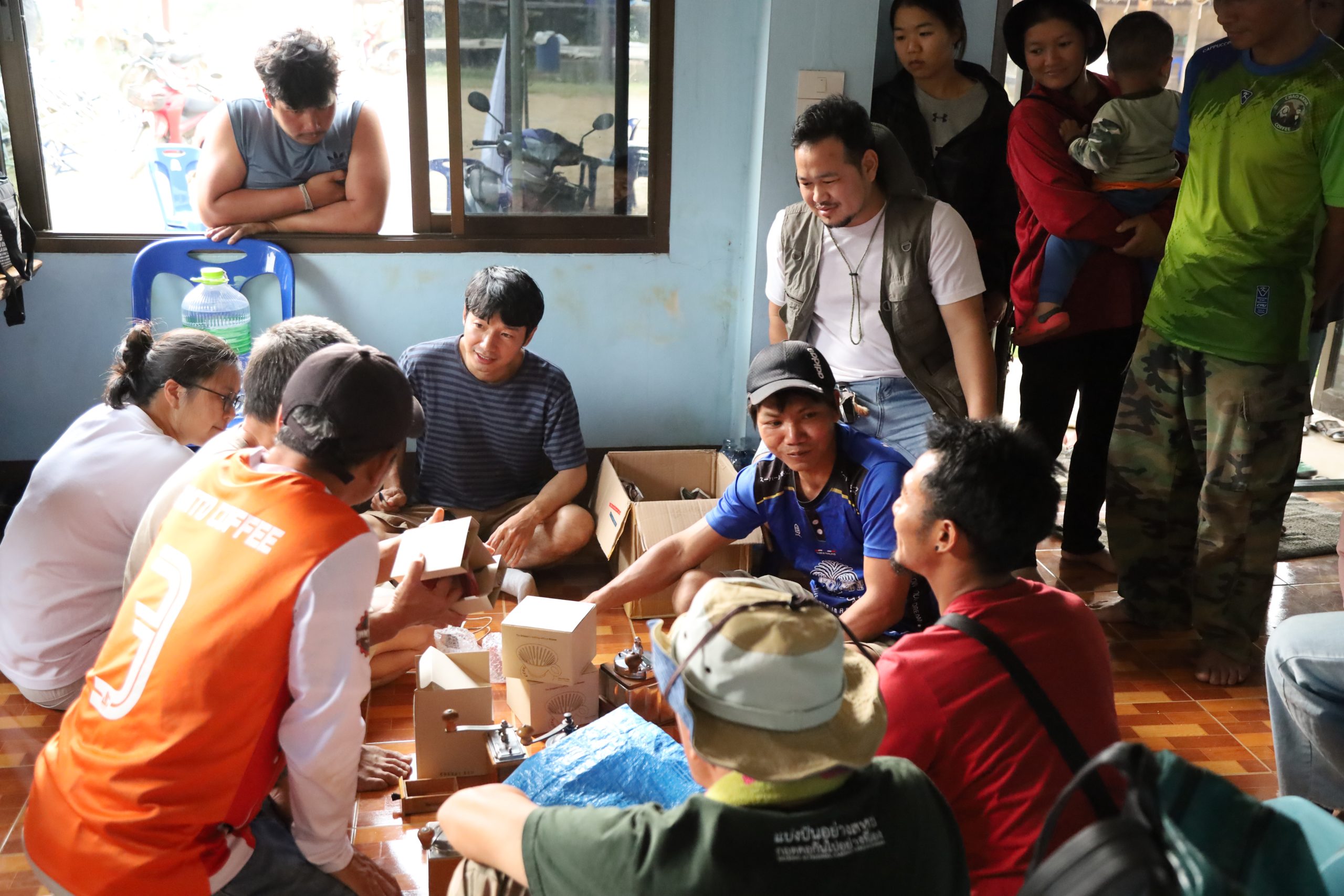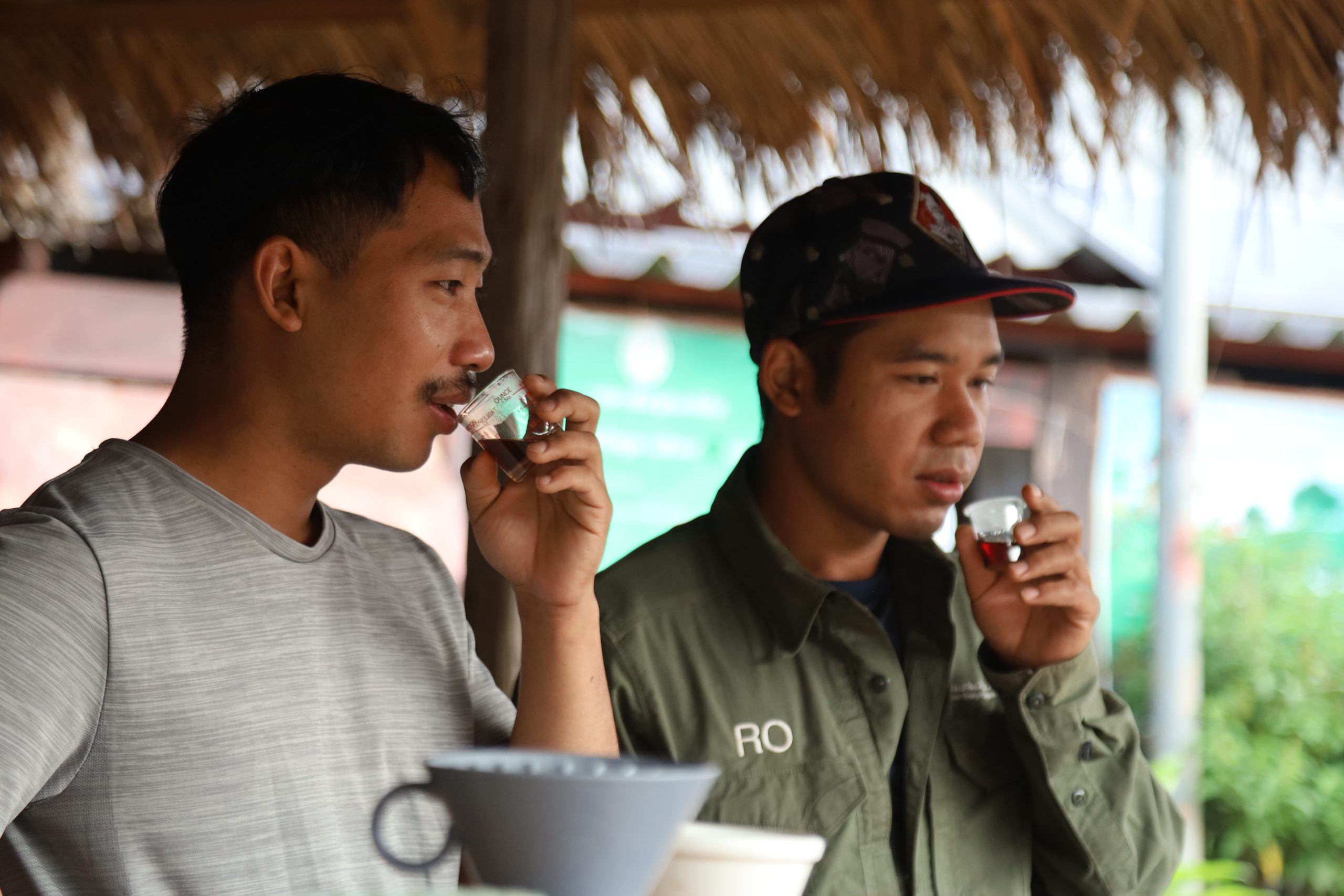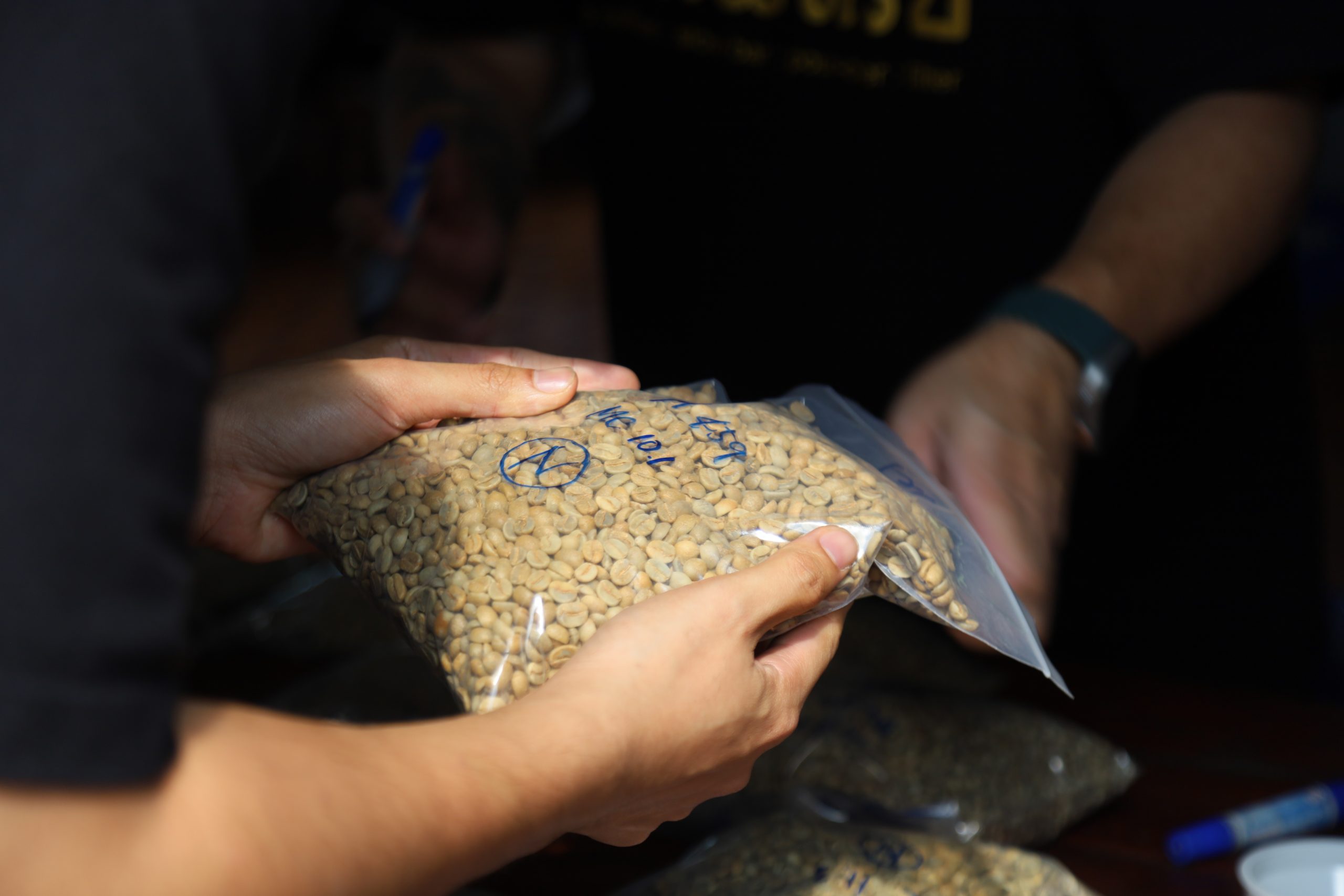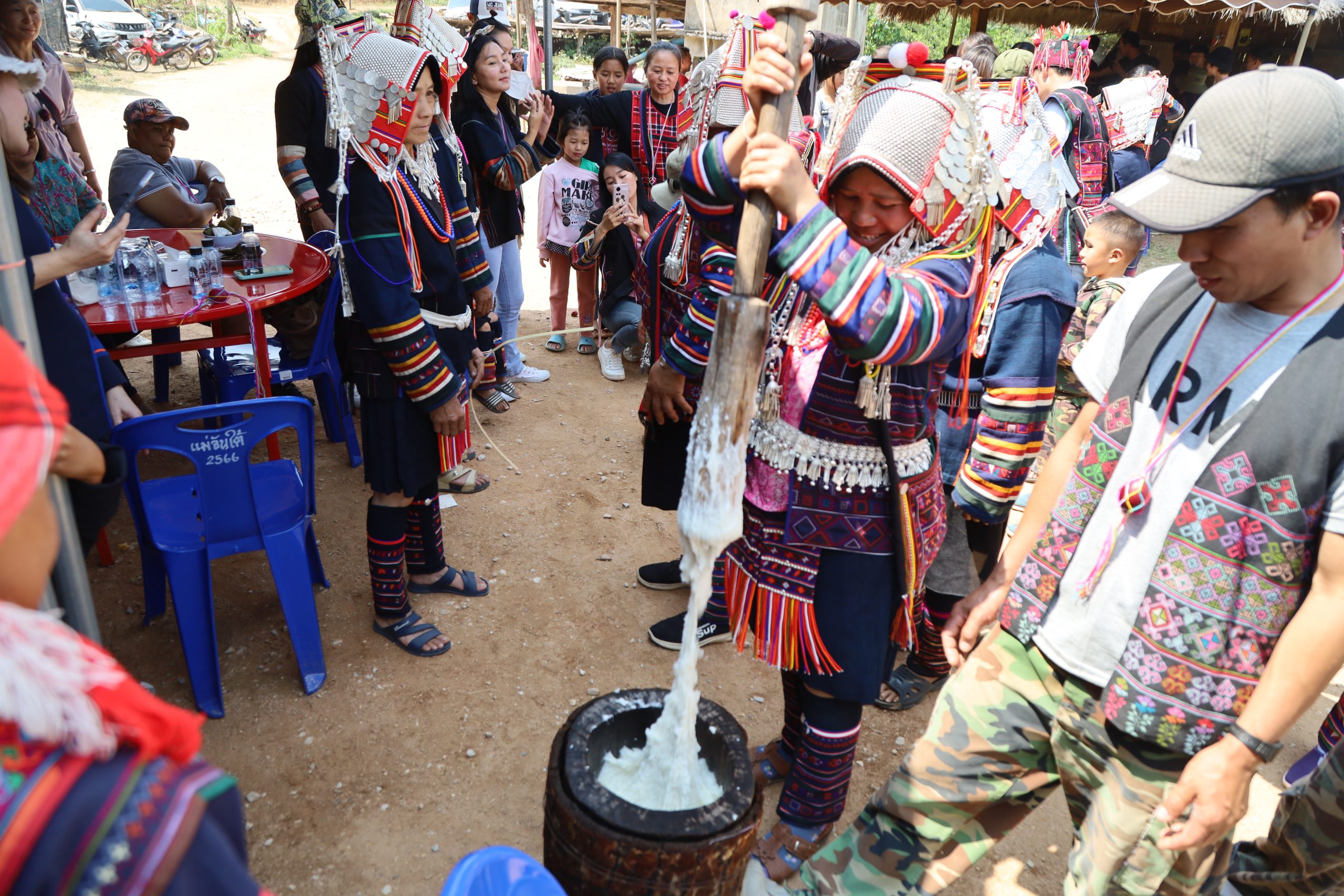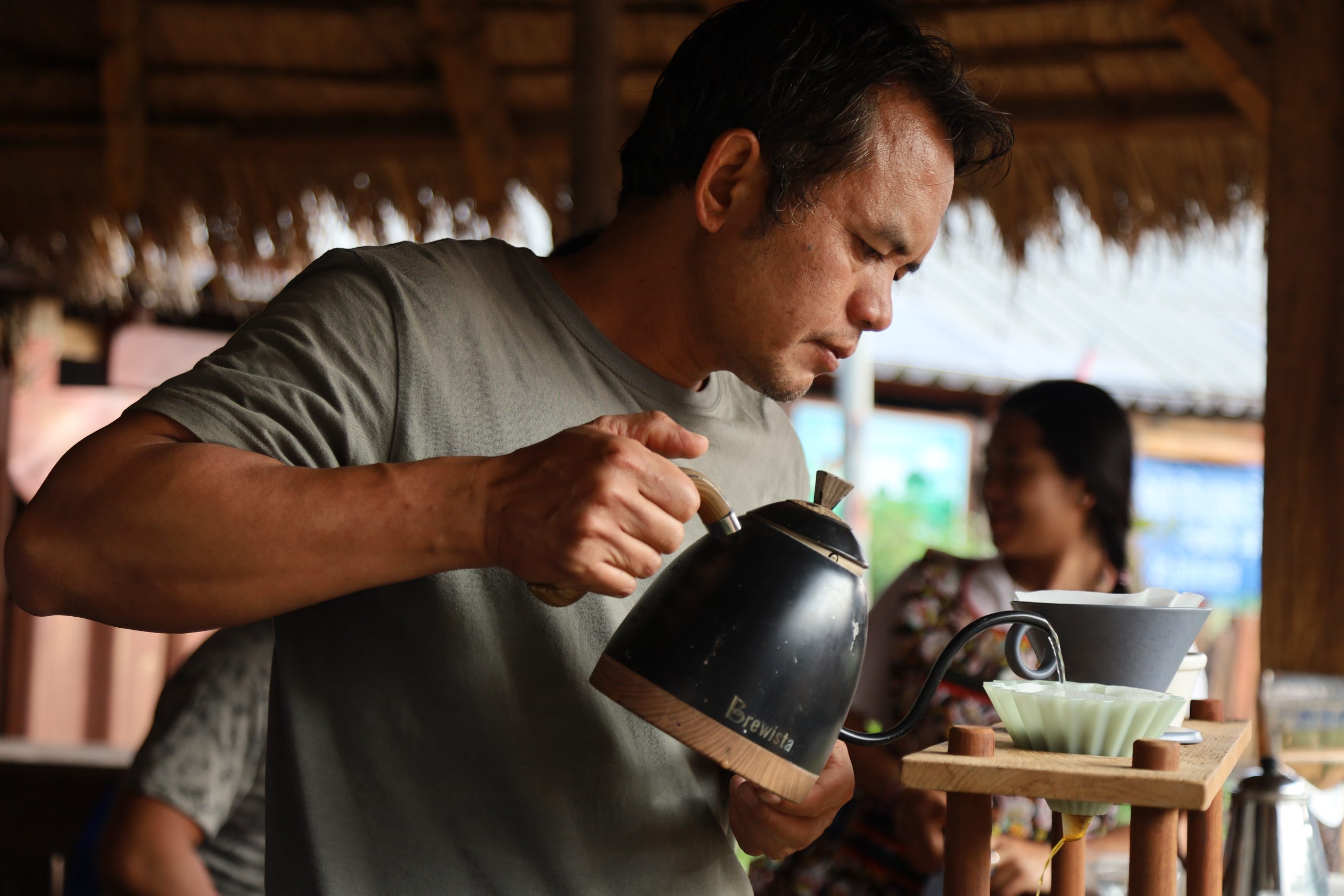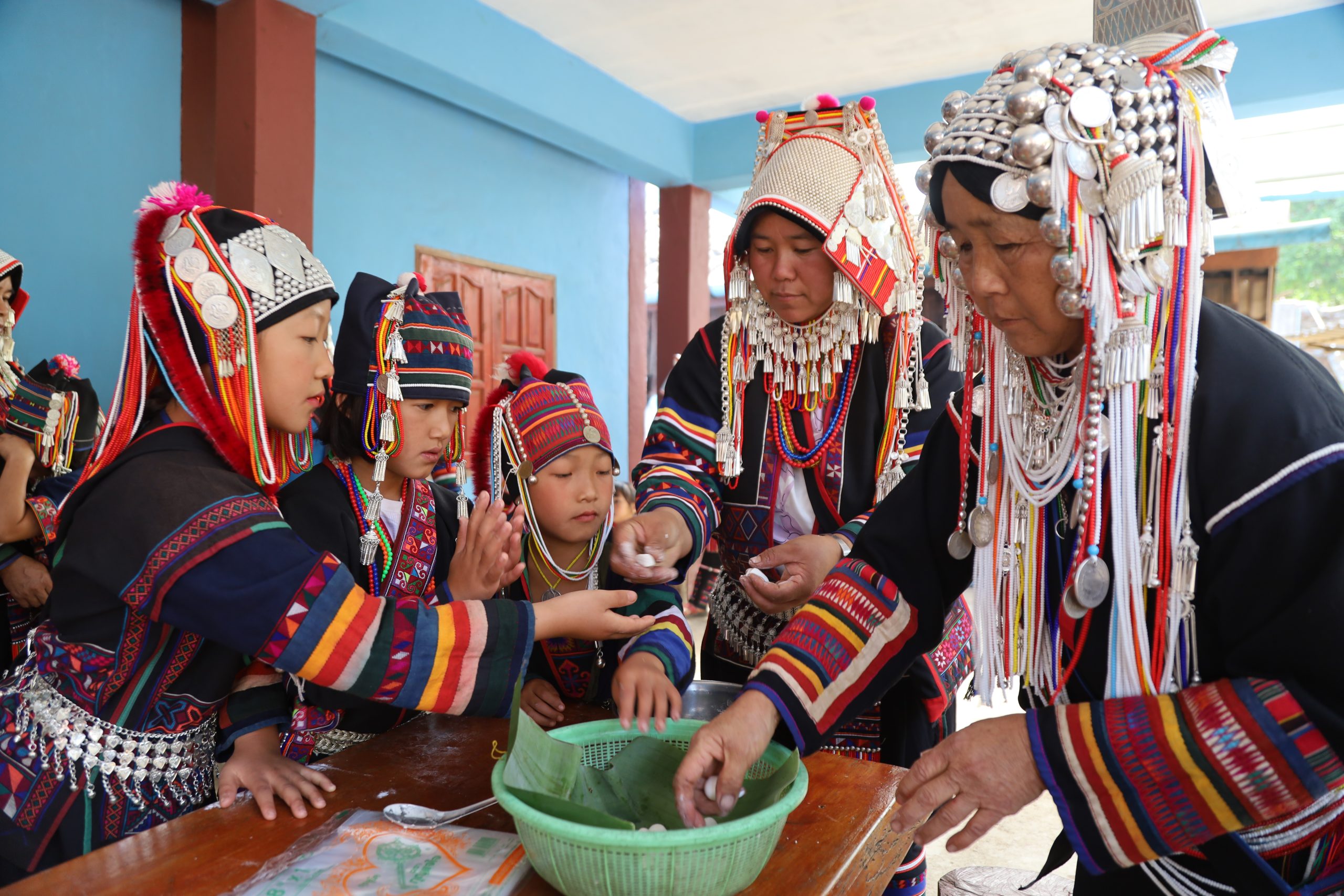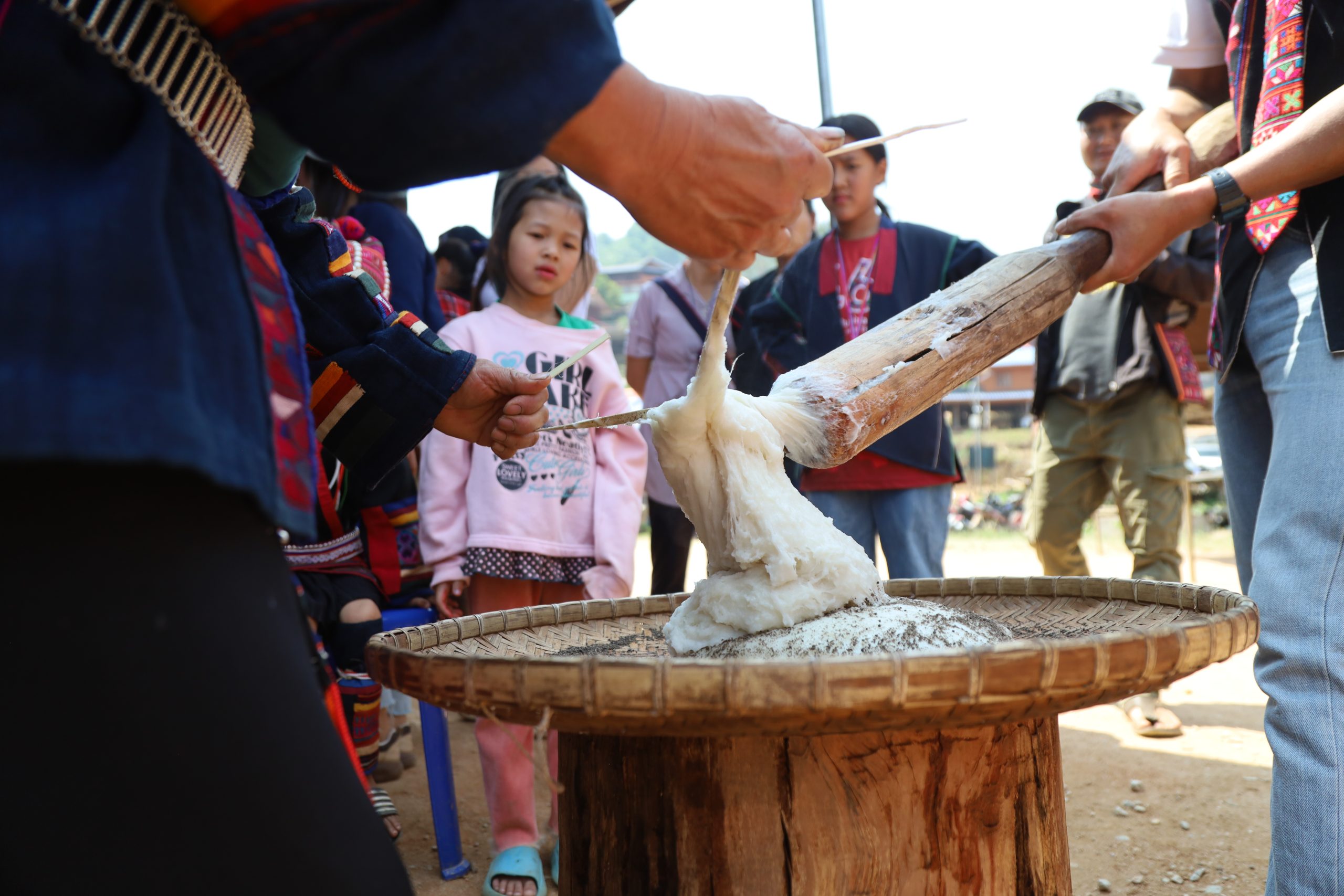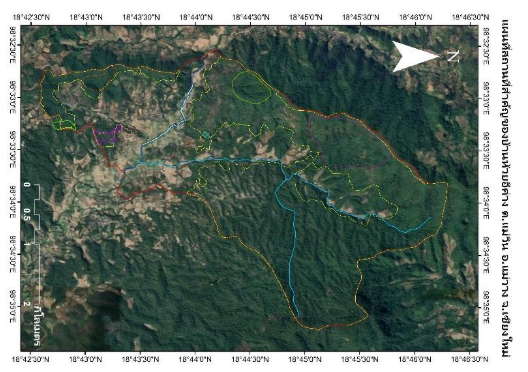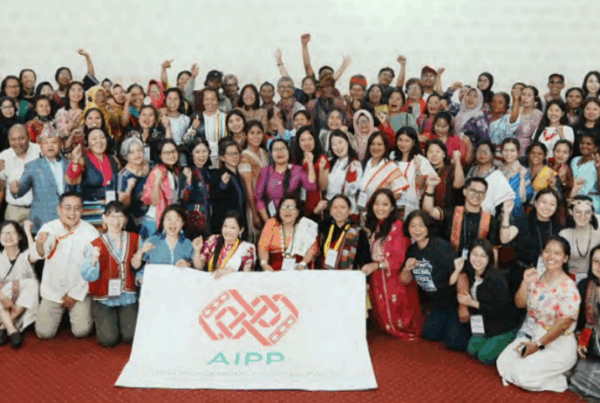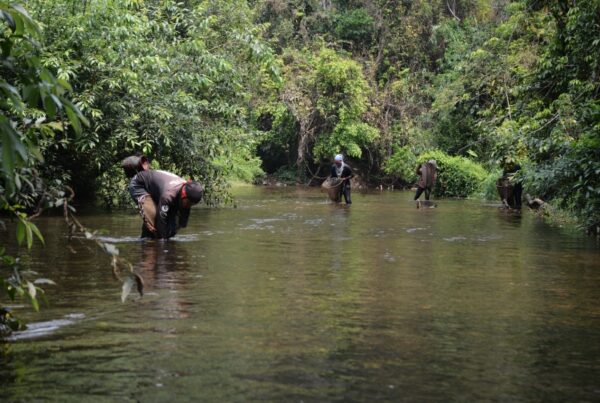This article was originally published by IMPECT.
The Mae Chan Tai Coffee Festival took place for the first time on April 15-16, alongside the annual traditional event of the Akha Indigenous group, known as “Khmqxeevq Khmqmir Aqpoeq lawr-e”, often referred to as the “Red Egg Festival.” People from nearby communities, coffee enthusiasts, and leading coffee shop owners from across Thailand attended. This marked the first community-level coffee quality competition in Thailand, as opposed to competitions typically held at the village, sub-district, or county levels.
“This event originated from the desire of youths to test their coffee in a competitive setting, assessing the quality of their production. We chose to align it with the annual traditional event of the Akha Indigenous group to showcase Mae Chan Tai’s treasures, including its environment, culture, and coffee,” said Santikul Juepa, a community leader.
The success of the event was attributed to collaboration among various parties, notably the coffee community, facilitated by Lee Ayu Jeupaa, a descendant of Mae Chan Tai, and the renowned coffee brand “Aka Ka Aka Ma,” which invited coffee experts as judges. Sanitkul emphasized that bringing ten nationally recognized experts to such a small community would have been nearly impossible without Lee’s coordination efforts.
Sanitkul further narrated that despite being the first large-scale event in a small community with only 229 residents or 43 households, the turnout exceeded expectations. Many villagers submitted their coffee samples for the competition, totaling 30 sets, and there was interest from people from various places, including coffee enthusiasts from Chiang Rai province, some from Chiang Mai, and even some who traveled from Bangkok. In addition to budget support from various agencies, villagers contributed funds to cover expenses, particularly for food and fuel needed to generate electricity throughout the event, as Mae Chan Tai still lacks electricity due to legal constraints as a conservation forest area.
Type: Blog
Region: Asia
Country: Thailand
Theme: Sustainable Livelihoods, Traditional and Local Knowledge
Partner: IMPECT
Photo credit: IMPECT
The Mae Chan Tai Coffee Fest is not a competition but an endeavor to elevate Mae Chan Tai coffee.
Sirawich Sirichokwatthana, owner of the Josado Farm coffee brand and a village member, confirmed that the festival’s main goal is not competition but rather a platform for young people to test their coffee quality and production skills. Each individual is involved in every step, from cultivation to processing and roasting, as they believe that in the future, locally produced coffee may face challenges from large coffee corporations.
“Mae Chan Tai is entering a new era. The younger generation may not engage in manual labor like previous generations but will focus on studying and producing high-quality coffee, creating brands, and developing marketing strategies based on acquired knowledge. Progress never stops here,” he said.
Sirawich believes that the new generation of villagers is not abandoning coffee cultivation but seeking ways to add value to their products, aiming to break free from the dominance of large companies. Almost every household processes coffee, utilizing methods such as the wet process, dry natural process, honey process, or a combination, with some even roasting their beans. Currently, villagers in Mae Chan Tai harvest up to 90 tons of fresh coffee beans annually, contributing up to 150 million baht per year to the Thai coffee market when considering the incremental value at each stage of production. The price for green coffee beans ranges from 500 to 3,000 baht per kilogram, depending on the coffee variety and processing method. Personally, Sirawich has a specific customer base that purchases roasted Gesha coffee beans at 6,000 baht per kilogram
“I don’t focus on quantity; instead, I prioritize quality coffee production that is sustainable and in harmony with nature. Therefore, I price my coffee based on its quality. For selling coffee, the quality will set its own price.
Photo credit: IMPECT
Sirawich prices his coffee based on quality rather than quantity, reflecting on his journey, which began 15 years ago as an extension of his parents’ coffee plantation. He focused on learning seedling cultivation, exploring specialty coffee varieties, and studying organic farming methods. His aspiration was to produce coffee for health-conscious consumers, leading to the creation of the “Josado” coffee brand, meaning “happiness” in the Akha language.
When discussing his personal perspective on what distinguishes coffee from Mae Chan Tai, he identifies three main factors. Firstly, the area benefits from favorable geographical conditions. Mae Chan Tai is situated within a watershed forest at an altitude of approximately 1,350 – 1,600 meters above sea level. Moreover, the presence of mountains provides shade, preventing excessive heat. These geographical features create an environment highly conducive to the cultivation of Arabica coffee.
Secondly, the region boasts rich biodiversity, supported by clear community regulations for forest conservation. Villagers have designated areas for conservation forests, watershed forests, utilitarian forests, and reforestation, with active participation in fire prevention measures and annual forest ordination ceremonies. As a result, with contributions from the forest ecosystem and coffee cultivation in cold weather fruit farms as part of an agro-agricultural system, Mae Chan Tai coffee develops a distinctive flavor profile characterized by various fruity and floral notes, often referred to as the “Fruity Taste.”
The third and arguably most crucial factor, is the genuine knowledge and expertise of local villagers in coffee production. They possess the ability to consistently maintain quality standards. Consequently, when people hear about Mae Chan Tai coffee, they can trust in its high quality.
“The strength of Mae Chan Tai coffee lies in the villagers’ knowledge. They understand that good coffee begins with proper care and expertise in processing. They continuously strive for self-improvement,” Sirawich concluded.
Santikul views the charm and strengths leading to the organization of the event as the capital of Mae Chan Tai, boasting quality coffee, a distinctive cultural identity, and a robust forest resource management system, all of which mutually benefit each other. He emphasizes the significant contributions of the Mae Chan Tai community to natural resource conservation, which, if calculated monetarily, would amount to hundreds of thousands of baht annually.
